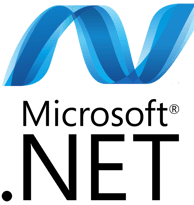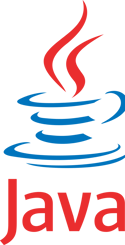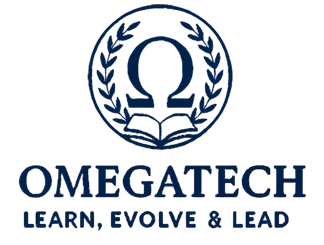.NET, JAVA , REACT FULL STACK
.NET is a Microsoft-developed framework used to build applications for web, desktop, mobile, and more. It supports multiple languages like C# and F#. It's known for strong performance, security, and integration with Windows-based systems. Java: Java is a versatile, object-oriented programming language used for building cross-platform applications. It's widely used in enterprise software, Android apps, and backend systems due to its reliability and scalability. React: React is a JavaScript library developed by Facebook for building fast and interactive user interfaces. It's component-based, making it easy to create reusable UI elements for web and mobile applications.
Omegatech.ai
5/8/20243 min read
Module 1: Introduction to Java & Setup
Topics:
● History of Java, features, and applications
● JVM, JRE, and JDK
● Installing Java & IntelliJ/Eclipse
● First Java Program (Hello World)
Objectives:
● Understand Java ecosystem
● Write and run a basic program
Activities:
● IDE walkthrough
● Hello World program demo
Assessment:
● Short quiz on Java basics
Module 2: Data Types, Variables & Operators
Topics:
● Primitive types and non-primitive types
● Type casting
● Operators (arithmetic, relational, logical, etc.)
● Constants & final keyword
Objectives:
● Use variables, constants, and operators
Activities:
● Create a calculator program
Assessment:
● Coding exercises on variable manipulation
Module 3: Control Flow Statements
Topics:
● if, else, switch
● for, while, do-while loops
● break, continue, return
Objectives:
● Implement decision-making and looping
Activities:
● Pattern printing exercises
● Number-based games
Assessment:
● Mini test with logic-based problems
Module 4: Functions and Scope
Topics:
● Defining and calling methods
● Method parameters and return types
● Variable scope and lifetime
● Method overloading
Objectives:
● Function calling and separation of concern Activities:
● Scope and method overloading Assessment: ● Mini project with different method logic for overloading
Module 5: Object-Oriented Programming (OOP) - Two Parts
Topics:
● Classes and Objects
● Constructors
● Inheritance
● Polymorphism
● Encapsulation & Abstraction
● this and super keyword
● Method overriding
Objectives:
● Model problems using OOP concepts Activities:
● Build a simple student management system Assessment:
● OOP coding project
Module 6: Arrays & Strings
Topics:
● 1D and 2D arrays
● Common array algorithms (search, sort)
● String handling and immutability
● String Builder vs String
Objectives:
● Manipulate arrays and strings efficiently Activities:
● Reverse array, palindrome checker Assessment:
● Algorithmic coding problems
Module 8: Collections Framework
Topics:
● List, Set, Map interfaces
● Array List, Linked List, Hash Set, Hash Map
● Iterators
● Sorting and searching collections
● Generics
Objectives:
● Use collections for data storage and manipulation
Activities:
● Inventory management system
Assessment:
● Hands-on tasks using different collections
Module 9: File Handling & I/O
Topics:
● Reading and writing files (text & binary)
● File Reader, Buffered Reader, File Writer, etc.
● Serialization & Deserialization
Objectives:
● Store and retrieve data from files
Activities:
● Read/write student records from a file
Assessment:
● Build a text file-based address book
Module 10: Multithreading & Concurrency
Topics:
● Thread class, Runnable interface
● Thread lifecycle
● Synchronization
● Executor Service (intro)
Objectives:
● Write concurrent programs safely
Activities:
● Print numbers using multiple threads
Assessment:
● Mini-project with threads (e.g., downloader simulator)
Module 11: Java APIs and Final Project
Topics:
● Common Java APIs (Math, Date, Collections, etc.)
● Java 8 Features (Lambdas, Streams – basic intro)
● Project design & planning
● Version control with Git (optional)
Objectives:
● Build a real-world project applying all learned concepts
Activities:
● Choose and build one of:
○ Library Management System
○ Hotel Booking System
○ Expense Tracker
○ Console-based Game
Assessment:
● Final Project + Presentation + Code Review
Optional Add-ons
● Java interview questions for beginners
● JUnit (for testing)
● Maven/Gradle basics
Evaluation & Grading
Component Weight
Quizzes 20%
Assignments 20%
Mini Projects 20%
Final Project 30%
Attendance 10%
Module 1: Introduction to .NET and C#
Topics:
● Overview of .NET platform
● CLR, CTS, CLS
● Setting up Visual Studio
● First C# program
● Data Types and Variables
● Operators and Expressions
● Control Statements (if, switch, loops)
● Methods and Parameters
● Arrays and Strings
● Exception Handling
● Object-Oriented Programming in C#
● Inheritance, Polymorphism, Abstraction, Encapsulation
Module 2: HTML & CSS Basics
Topics:
● HTML Structure and Tags
● Forms and Input Elements
● Tables and Semantic Tags
● Introduction to CSS
● CSS Selectors and Properties
● Box Model and Positioning
● Flexbox and Grid
● Responsive Design Basics
Module 3:ADO.NET
Topics:
● Introduction to ADO.NET
● Connection, Command, Data Reader, Data Adapter, Data Set
● Performing CRUD operations
● Working with SQL Server
● Stored Procedures and Parameters
Module 4: ASP.NET (Web Forms)
Topics:
● Introduction to ASP.NET Web Forms
● Page Lifecycle
● Server Controls and HTML Controls
● View State and Post Back
● Validation Controls
● Data Binding (Grid View, Repeater)
● Authentication and Authorization
● Error Handling in ASP.NET
Module 5: ASP.NET MVC
Topics:
● Introduction to MVC Architecture
● Setting up ASP.NET MVC Project
● Controllers, Views, and Models
● Routing and URL Patterns
● View Bag, View Data, Temp Data
● Data Annotations and Validation
● Entity Framework Integration
● Partial Views and Layouts
● Error Handling in ASP.NET
Module 6: ASP.NET Core
Topics:
● Overview of ASP.NET Core
● Middleware and Startup Class
● Dependency Injection
● Configuration and App Settings
● Static Files and Hosting
● Logging and Environment Settings
● Error Handling in ASP.NET
Module 7: ASP.NET Core MVC
● Creating ASP.NET Core MVC Project
● Routing and Endpoints
● Controllers and Actions
● Model Binding and Validation
● Working with Razor Views
● Tag Helpers and View Components
● Entity Framework Core Integration
● Error Handling in ASP.NET
Module 8: Web API
Topics:
● Introduction to RESTful Services
● Creating Web API in ASP.NET Core
● HTTP Methods (GET, POST, PUT, DELETE)
● Routing and Attribute Routing
● Model Binding and Validation
● Consuming Web API using Http Client
● Securing Web API with JWT
Module 9: WCF (Windows Communication Foundation)
Topics:
● Introduction to WCF
● Creating and Hosting WCF Services
● Service Contracts and Data Contracts
● Endpoints: Address, Binding, Contract
● Consuming WCF Services
● WCF vs Web API
Module 10: Web Services (ASMX)
Topics:
● Introduction to XML Web Services
● Creating ASMX Web Services
● Calling Web Services in ASP.NET
● SOAP and WSDL Basics
Module 11: SQL Server
Topics:
● Introduction to RDBMS and SQL Server
● Creating Tables, Views, and Indexes
● Constraints and Keys
● Writing Queries (SELECT, INSERT, UPDATE, DELETE)
● Joins and Subqueries
● Stored Procedures and Functions
● Transactions and Error Handling
● Triggers in SQL Server
● Creating and Using Views
● Creating and Managing Indexes




